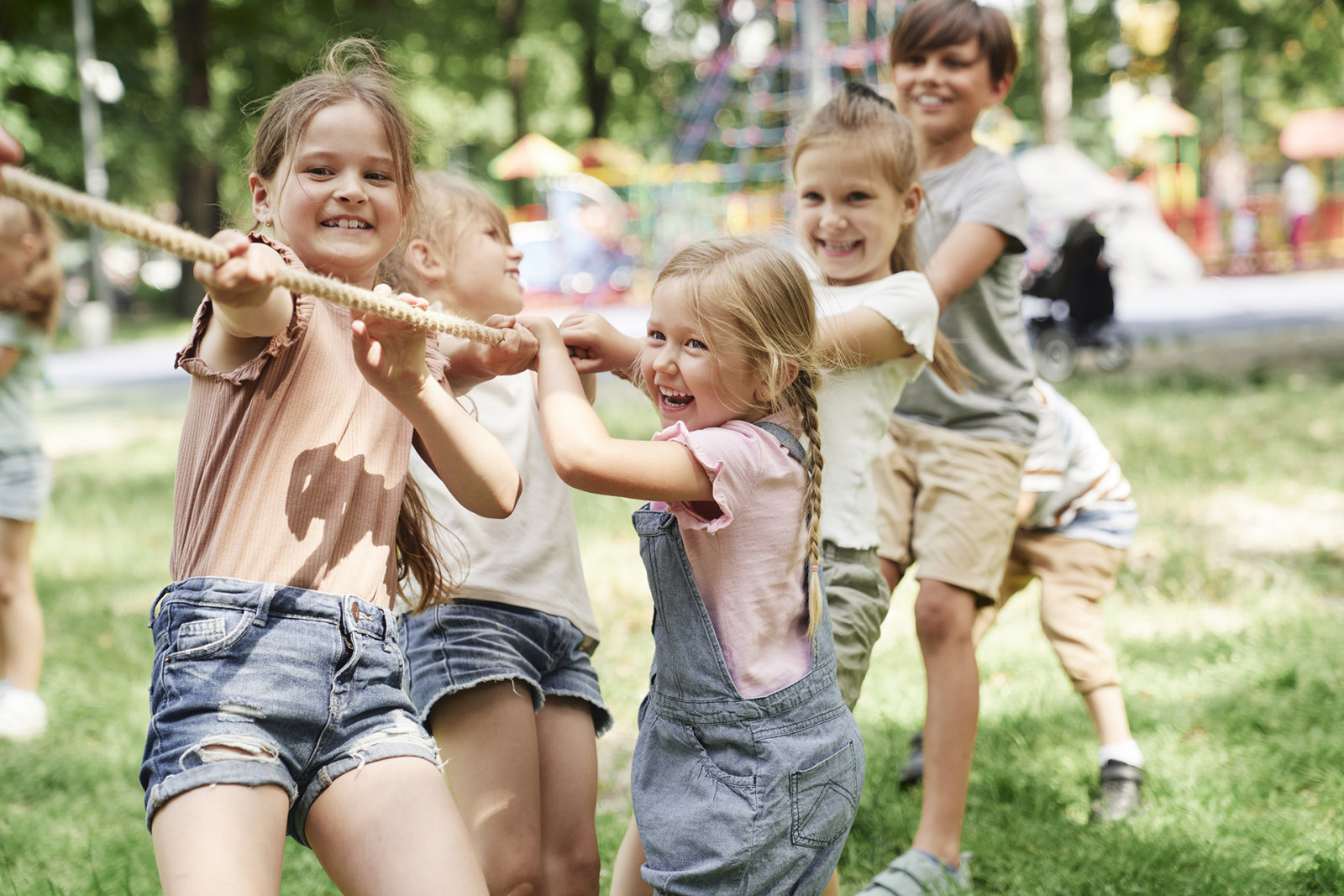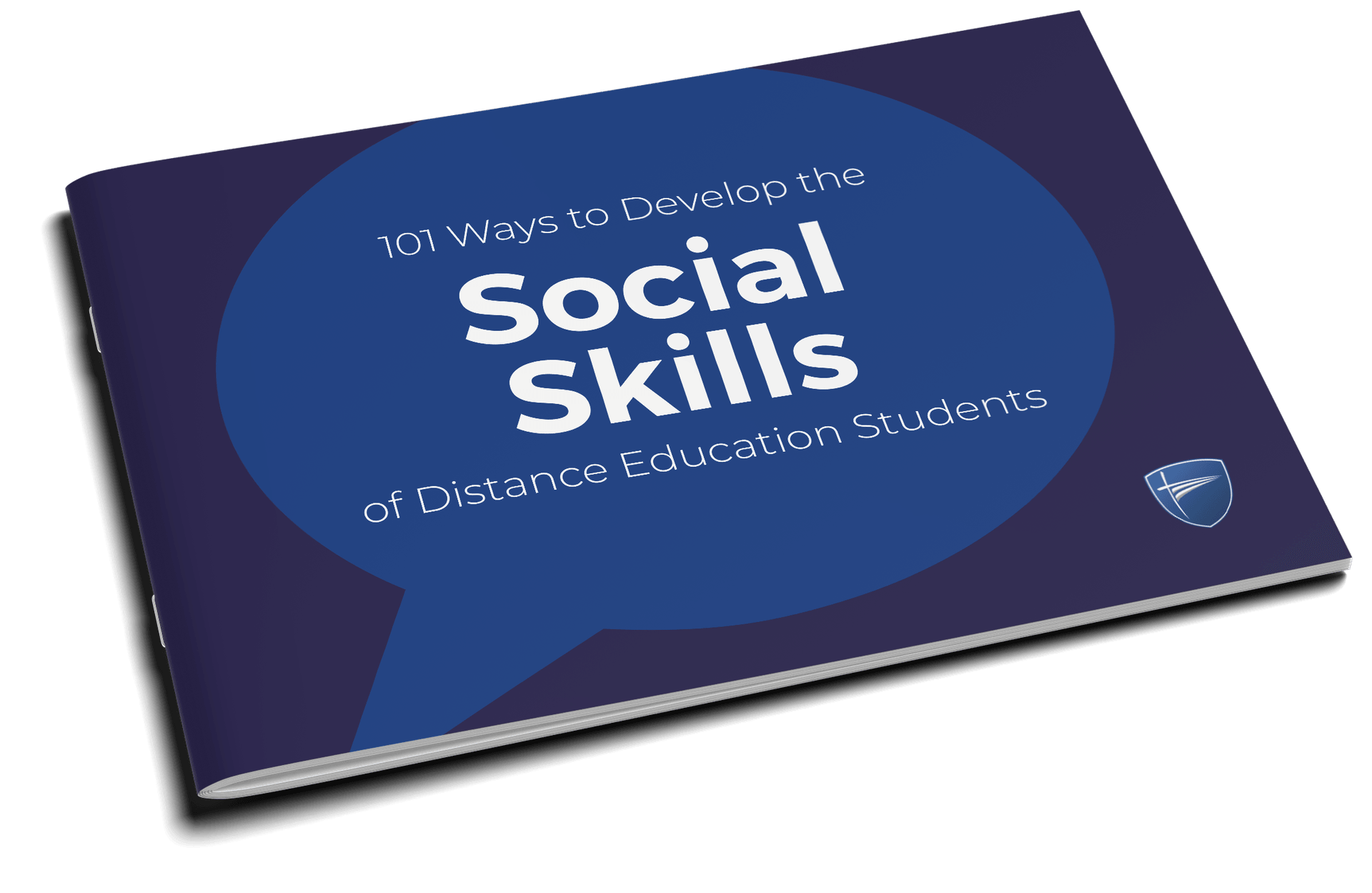Helping Your Child Thrive Socially in Distance Education

Table of Contents
Helping your child thrive socially in distance education
When God placed it on our hearts to educate our daughters at home, my first reaction was “No way!” Like many people, I’d seen the stereotypes depicting home-schooled kids as withdrawn, awkward, or just a bit weird. Then we met some distance education families and were surprised at how ‘normal’ their kids were. Sure, some were shy, but aren’t some kids who go to school? Others were extroverted and chatty.
Next, at a distance education talk, I heard something that completely changed my perspective. Someone asked the top question home schoolers hear: “What about socialisation?” The presenter’s response? “If by socialisation you simply mean putting a child in class with 25 of their peers for 30 hours per week, then no, distance education won’t do it. But if you want your children to learn to interact with people of all ages from various backgrounds, distance education is a great way to do it.”
With COVID-19 upending our daily lives, many parents were forced into a form of distance education. Now, distance education is again a choice. Whatever your reason for doing it, the good news is it’s definitely possible for children to thrive socially in distance education.
Exploring the concept of socialisation
Before we look at ways you can help your child build effective social skills in distance education, it’s worth thinking about what ‘socialisation’ actually means.
Definition of socialisation
According to the Open Education Sociology Dictionary, socialisation is “The lifelong process of an individual or group learning the expected norms and customs of a group or society through social interaction.”
In other words, socialisation involves learning and adopting the standards, values, and beliefs of the culture around you. Examples of socialisation include learning about acceptable behaviour in certain situations and how to engage with others.
Socialisation is especially crucial during childhood, when children are developing the skills to have successful social interactions throughout their lives.
A brief history of socialisation for home educated students
According to the Coalition for Responsible Homeschooling in the United States, modern home education started in the 1970s with educational theorist and school reformer John Holt. He argued that rote learning in traditional schools, designed to turn children into compliant employees, was burdensome, and encouraged parents to follow an approach now known as ‘unschooling’. This involves allowing children to learn through everyday life, following their natural interests.
In Australia, ‘modern’ home schooling goes back further. In 1951, the first ‘school of the air’ opened in Alice Springs, allowing isolated students to be educated by correspondence. It’s likely children on remote properties mainly socialised with their families and hired workers, with opportunities to socialise with peers when they went into town or had visitors.
Around the turn of the millennium, there was a shift to ‘distance education’ using internet-based technologies. This allowed students to interact with their teachers and peers via email, webinars, screen-casting, live chats and video recordings.
Socialisation during childhood
From birth, interactions with others are a key part of daily life. After all, we’re born needing someone else to provide for all our needs. Socialisation is also important for brain development. Recent research has shown that links between behaviour and brain development are apparent from three months of age, and that early interactions can affect the brain for decades.
Childhood socialisation can happen in various settings. In the home, children learn social skills from their parents or carers. Having a loving, responsive relationship with caregivers helps children learn to communicate, express their emotions and respect others' boundaries. These skills lay the foundation for positive social interactions with peers and other adults.
In the community, children interact with people from diverse backgrounds and cultures. Exposure to different perspectives and ways of life helps children develop a broader understanding of the world and empathy for others.
When we did distance education, we took our kids with us to the shops and medical appointments so they could mix with various people in the course of everyday life.
Socialisation in education
Starting their education provides another opportunity for children to socialise beyond the home. During the schooling years, children learn how to make friends, cooperate with others, and develop empathy for their peers.
Regular school socialisation vs distance education socialisation
Regular school attendance gives children plenty of opportunities for socialisation, such as participating in group projects and school-based extra-curricular activities. In distance education, children don’t have a ready-made group of peers, which can make socialisation more challenging.
However, good distance education providers are aware of children’s social needs and provide opportunities for home-schooled kids to work collaboratively and build friendships. In our digitised world, it’s easy for students to connect over technology and work on projects together. Distance education students can also join online groups with children who share similar interests.
Furthermore, school is not the only place where kids can learn, play and hang out together. Children doing distance education also have opportunities to meet face-to-face. Many areas have home-schooling cooperatives where families meet up and kids participate in shared lessons and activities. We joined a local group where our girls did projects ranging from Australian history to knitting.
Parents can also support their kids to develop social skills by joining community-based programs. Examples include:
- Sports clubs – such as football, swimming, and netball. Our local gymnastics club even ran a dedicated daytime class for home-educated kids.
- Libraries – many libraries run a range of children’s programs, from story time and book clubs to Lego and computer coding.
- Parks – take note of when families visit your local park and make a point of going there then.
- Museums, galleries and zoos – who often run children’s programs, especially during school holidays.
- YMCA – many offer fitness classes, camping programs, youth mentoring and more.
- Arts organisations – you might find a local choir, theatre group, or youth orchestra your child can join.
- Church – many churches have Sunday school, youth group, and other programs where kids can socialise with their peers.
Investigating the research into socialisation of school students
Research has shown that socialisation in school students is a complex process influenced by various factors, including family background, peer groups, and school environments.
For example, a recent study of primary school students showed parental education level, positive and negative emotions, adherence to gender roles and involvement in cyberbullying all had an influence over children’s social behaviours.
Another recent study noted a sense of school belonging is linked with numerous positive outcomes, including better psychosocial health and wellbeing, social behaviour, academic achievement, and transition into adulthood. However, the authors also pointed out that worldwide, more students report not feeling a sense of belonging to their school.
What about research involving kids who do distance education? A comprehensive survey found it difficult to draw conclusions due to limitations in study design. However, an Australian survey concluded that home-educated children are more socially active than people think. They found children doing distance education had plenty of opportunities for social engagement, such as involvement in community groups and home-schooling co-ops.
Final reflections on socialisation and distance education
When it comes to the question of socialisation in distance education, the stereotypes don’t reflect the reality. Our daughters are now young adults, and one is married to a wonderful godly man. They have solid friendships and are perfectly capable of interacting with people at work and socially. We believe our years spent doing distance education (along with God’s grace) not only allowed them to grow socially, but also set firm foundations of Christian character and values that will help them follow paths of wisdom throughout their lives.

